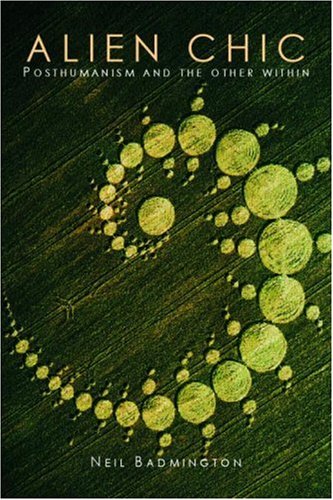Donna J. Haraway: When Species Meet (2008)
Filed under book | Tags: · activism, animal, bioethics, care, cloning, companion species, dogs, genetics, language, love, philosophy, play, posthumanism

“In 2006, about 69 million U.S. households had pets, giving homes to around 73.9 million dogs, 90.5 million cats, and 16.6 million birds, and spending over $38 billion dollars on companion animals. As never before in history, our pets are truly members of the family. But the notion of “companion species”—knotted from human beings, animals and other organisms, landscapes, and technologies—includes much more than “companion animals.”
In When Species Meet, Donna J. Haraway digs into this larger phenomenon to contemplate the interactions of humans with many kinds of critters, especially with those called domestic. At the heart of the book are her experiences in agility training with her dogs Cayenne and Roland, but Haraway’s vision here also encompasses wolves, chickens, cats, baboons, sheep, microorganisms, and whales wearing video cameras. From designer pets to lab animals to trained therapy dogs, she deftly explores philosophical, cultural, and biological aspects of animal-human encounters.
In this deeply personal yet intellectually groundbreaking work, Haraway develops the idea of companion species, those who meet and break bread together but not without some indigestion. “A great deal is at stake in such meetings,” she writes, “and outcomes are not guaranteed. There is no assured happy or unhappy ending—socially, ecologically, or scientifically. There is only the chance for getting on together with some grace.”
Ultimately, she finds that respect, curiosity, and knowledge spring from animal-human associations and work powerfully against ideas about human exceptionalism.”
Publisher University of Minnesota Press, 2008
ISBN 0816650462, 9780816650460
360 pages
Reviews: Margrit Shildrick (Society and Animals, 2008), Ivan Csicsery-Ronay, Jr. (Humanimalia, 2010).
PDF (updated on 2012-7-31)
Comment (0)Sarah Kember: Cyberfeminism and Artificial Life (2003)
Filed under book | Tags: · artificial life, cyberfeminism, cyborg, ethics, feminism, life, posthumanism, wetware

Cyberfeminism and Artificial Life examines construction, manipulation and re-definition of life in contemporary technoscientific culture. It takes a critical political view of the concept of life as information, tracing this through the new biology and the changing discipline of artificial life and its manifestation in art, language, literature, commerce and entertainment. From cloning to computer games, and incorporating an analysis of hardware, software and ‘wetware’, Sarah Kember demonstrates how this relatively marginal field connects with, and connects up global networks of information systems.
As well as offering suggestions for the evolution of [cyber]feminism in Alife environments, the author identifies the emergence of posthumanism; an ethics of the posthuman subject mobilized in the tension between cold war and post-cold war politics, psychological and biological machines, centralized and de-centralized control, top-down and bottom-up processing, autonomous and autopoietic organisms, cloning and transgenesis, species-self and other species. Ultimately, this book aims to re-focus concern on the ethics rather than on the ‘nature’ of life-as-it-could-be.
Publisher Routledge, 2003
ISBN 0415240263, 9780415240260
257 pages
Keywords and phrases
evolutionary psychology, epistemology, ALife, sociobiology, autopoiesis, posthuman, cyberfeminism, norns, Steve Grand, science wars, SimLife, feminism, ontology, SimEarth, Risan, natural selection, cyborg, connectionism, feminist, autonomous agents
PDF (updated on 2013-3-16)
Comments (2)Neil Badmington: Alien Chic: Posthumanism and the Other Within (2004)
Filed under book | Tags: · alien, extraterrestrial, posthumanism

“Alien Chic sets out to provide a cultural history of the alien since the 1950s, asking why our attitudes to aliens have changed from fear to affection, and what this can tell us about how we now see ourselves and others.
The author begins by exploring our relationship with the concept of aliens, primarily through films, including Invaders from Mars, Mars Attacks and Mission to Mars. He then progresses to ideas of humanism and what makes us human, taking in the works of thinkers such as Descartes, Barthes, Freud, and Derrida.
The book then considers the concept of posthumanism in an age in which the lines between what is human and what is non-human are increasingly blurred by advances in science and technology, for example cloning and genetic engineering, and the development of AI and cyborgs. This leads to the question of whether our embracing of all things ‘alien’ stems from a need to reaffirm ourselves as “human.”
Written in a clear and engaging style, Alien Chic is an original and thought-provoking contribution to the study of posthumanism.”
Publisher Routledge, 2004
ISBN 0415310237, 9780415310239
203 pages
Key terms: posthumanism, extraterrestrial, Jacques Derrida, Mars Attacks, Invaders from Mars, Body Snatchers, Starship Troopers, hashish, anthropocentric, Jacques Lacan, Independence Day, Don Siegel, invasion films, Katherine Hayles, Descartes, Mission to Mars, Whitley Strieber, alien abduction, Jean Baudrillard, posthumanist
PDF (updated on 2012-7-24)
Comment (0)
